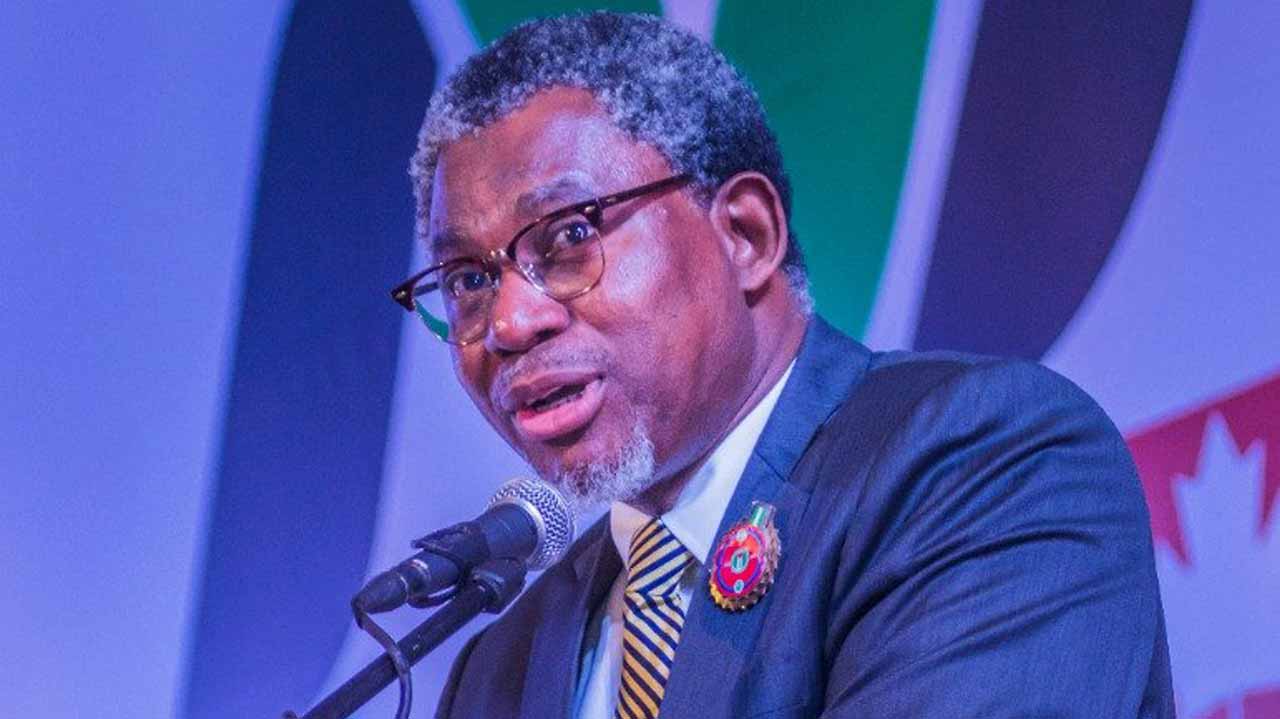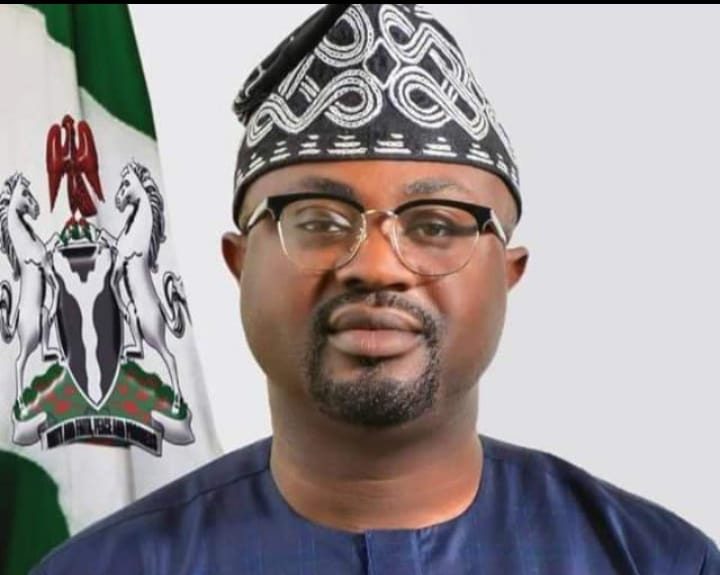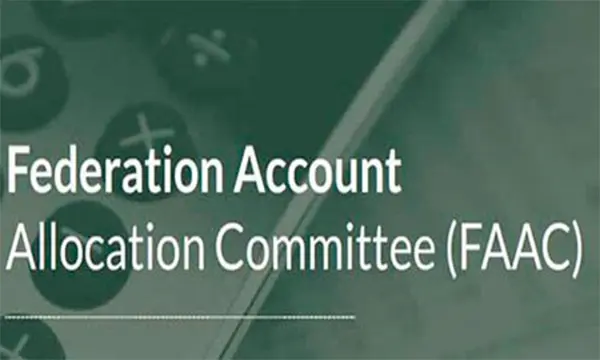Headlines
Nigerian Government revokes 5,793 mining licences in six years, operators blame insecurity

The Federal Government has revoked at least 5,793 inactive mining licences, Media investigation has revealed.
Our correspondents learnt that the licences that were revoked included mining, exploration, quarry and small scale mining titles.
It was earlier reported that Federal Government issued more than 7,000 licences since the inception of the Nigerian Mining Cadastre Office.
However, in an attempt to reposition the mining sector as a major source of revenue for the country, the Federal Government gathered a list of inactive mining titles for a long, rigorous revocation process.
A highly placed source in the Ministry of Mines and Steel Development confirmed this to our correspondent.
According to a source, who spoke on condition anonymity, said the revocation of licences did not have a yearly pattern as the process was complicated and rigorous.
The source said from the inception of the cadastre office to February this year, 5,793 mining licences had been revoked.
The source said, “The revocation does not happen yearly because this is a complicated, rigorous process. Based on what we have; 5,793 licences have been revoked to date.
“From the inception of the office till February this year, this is the number we have.”
The source further affirmed that the use it or lose it the policy of the Federal Government was still effective, adding that beyond not paying for the renewal of their licences, some licensees who failed to use their licences could get the licences taken from them.
“If they don’t use it, they lose it. When the licence gets revoked, it means they have lost it. Also, those who refuse to pay for their licences will lose it,” the source added.
Revocation of inactive licences is in line with provisions of the laws governing the mining sector.
The Director-General of the Nigerian Mining Cadastre Office, Mr Simon Nkom, had stated that the agency had revoked some inactive mining licences in line with its ‘use it or lose it’ approach.
He had said, “Use it or lose it helps to eliminate speculators. When we give you the licence you either use it or lose it.
“It is on that basis that we have been able to make the system attractive enough for investors to generate more revenue.”
One of our correspondents also examined some signed licence documents on the website of the Mining Cadastre Office.
The documents showed that from November 11, 2015, to June 30, 2021, the number of signed licences had dropped by 5,786.
The number of signed licences dropped from 6650 signed licences as of November 11, 2015, to 1122 signed licences as of June 30, 2021.
Revocation of inactive mining licences was a major recommendation in the report of the Ministerial Committee on Optimisation of Revenue from Mineral Resources.
Headed by Minister of State for Mines and Steel Development, Dr Uche Ogah, the committee was established in 2019 to develop strategies towards improving revenue generation from mineral exploitation.
In its report, the committee advised the ministry to direct the Mining Cadastre Office, the agency that supervises mining licences, to revoke all inactive mineral titles.
The committee stated that revocation of inactive licences would enable genuine investors with the requisite capacity to acquire mining sites and invest in exploration and mining activities.
Speaking on the development, the President of the Miners Association of Nigeria, Kabiru Mohammed, attributed the preponderance of revoked mining licences to inactive mining activities on licensed sites, which he said was a violation of one of the conditions for obtaining a mining licence from the government.
He also stated that the inability of miners to visit or set up structures on the licensed sites was not by choice but as a result of security challenges in the county and restrictions prompted by the COVID-19 pandemic.
Mohammed said, “The licences that have been revoked over the years have seriously affected miners in the country and as an association, we are not happy about it because it is affecting our businesses.
“The government has its reasons for revoking these licences. In most cases, if you are given a licence, there are some conditions for which you are given.
“If you do not comply with the regulations binding on the issued licence the government has the right to revoke.
“However, I want you to understand the challenges of miners in the country. Mining activities in Nigeria has been badly affected by both the banditry, the insecurity and the kidnapping prevalent in the country. The COVID-19 pandemic is also a militating factor.
“These have made most of our miners run away from the mining sites. And the law says if you are inactive and are not using the mining licence, you are liable to revocation. That is why the government is revoking some of our licences.”
He added, “We are appealing to the government to tamper justice with mercy, in the sense that it is not as if we do not want to make use of the mining sites but because of these conditions.
“Nobody can go to the sites now for fear of being kidnapped and even the COVID-19 has made it impossible for a large number of people to congregate in one place.”
When questioned on the implication of a large number of revocations on the mining sector, Mohammed said the Federal Government revoked the licences to serve as a warning to erring miners and could reissue the licences if activities on the sites commenced.
He said, “While the interest of miners is paramount to me, I don’t support them in doing the wrong thing. Even if these conditions that hamper our activities are absent, some miners would still be inactive and there will still be a revocation.
“There are some influential people that acquire many licences without revisiting the sites or setting up any structure. This would attract revocation of these licences.
“So, it is not as if the government intends to pull down the mining sector by revoking licenses but it is a form of sanction, a kind of wake up call to inactive miners.
“However, because the issue of insecurity and the pandemic is very real, the government should soft-pedal on miners at the moment.”
The Federal Government, on its part, has been engaged in several activities to encourage more investors in the mining sector.
The government had tried to strengthen bilateral relations with countries, such as the UK, Korea and Russia to boost the Nigerian mining sector.
The Federal Government said as part of the Nigerian Mineral Exploration Project, it invested $50m on certain minerals to create visibility, adding that the data would be released to the market and auctioned to interested investors.
Also, with support from the World Bank, the government recently launched Airborne Geophysical Survey in 19 states.
The essence was to provide more data on the minerals in Nigeria to attract more investors with the collated data.
Punch
Headlines
Noble Ladies Champion Women’s Financial Independence at Grand Inauguration in Abuja

Women from diverse backgrounds across Nigeria and beyond gathered at the Art and Culture Auditorium, Abuja, for the inauguration and convention of the Noble Ladies Association. The event, led by the association’s Founder and “visionary and polished Queen Mother,” Mrs. Margaret Chigozie Mkpuma, was a colourful display of feminine elegance, empowerment, and ambition.
The highly anticipated gathering, attended by over 700 members and counting, reflected the association’s mission to help women realise their potential while shifting mindsets away from dependency and over-glamorization of the ‘white collar job.’ According to the group, progress can be better achieved through innovation and creativity. “When a woman is able to earn and blossom on her own she has no reason to look at herself as a second fiddle,” the association stated.
One of the association’s standout initiatives is its women-only investment platform, which currently offers a minimum entry of ₦100,000 with a return of ₦130,000 over 30 days—an interest rate of 30 percent. Some members invest as much as ₦1 million, enjoying the same return rate. Mrs. Mkpuma explained that the scheme focuses on women because “women bear the greater brunt of poverty” and the platform seeks “to offer equity in the absence of economic equality.”
Education is also central to the Noble Ladies’ mission, regardless of age. Their mantra, “start again from where you stopped,” encourages women to return to school or upgrade their skills at any stage in life. The association believes that financial stability is vital in protecting women from cultural practices that dispossess widows of their late husbands’ assets, while also enabling them to raise morally and socially grounded families.
Founded on the vision of enhancing women’s skills and achieving financial stability, the association rests on a value system that discourages pity and promotes purpose. “You have a purpose and you build on that purpose to achieve great potentials and emancipation,” Mrs. Mkpuma said.
A criminologist by training and entrepreneur by practice, she cautions against idleness while waiting for formal employment. “There are billions in the informal and non-formal sectors waiting to be made,” she said, rejecting the “new normal of begging” and urging people to “be more introspective to find their purpose in life and hold on to it.”
Mrs. Mkpuma’s management style keeps members actively engaged, focusing on vocational skills and training to prepare them for competitive markets. She is exploring “innovative integration of uncommon technologies” and is already in talks with international franchises to invest in Nigeria, with Noble Ladies as first beneficiaries.
The association’s core values include mutual respect, innovation, forward-thinking, equal opportunity, and financial emancipation. With plans underway to establish a secretariat in the heart of Abuja, the group aims to expand its impact.
The event drew high-profile guests, including former Inspector General of Police, Mike Okiro, and a host of VIPs, marking a significant milestone in the association’s drive for women’s empowerment.
Headlines
NEPZA, FCT agree to create world-class FTZ environment

The Nigeria Export Processing Zones Authority (NEPZA) has stepped in to resolve the dispute between the Federal Capital Territory Administration and the Abuja Technology Village (ATV), a licensed Free Trade Zone, over the potential revocation of the zone’s land title.
Dr. Olufemi Ogunyemi, the Managing Director of NEPZA, urged ATV operators and investors to withdraw the lawsuit filed against the FCT administration immediately to facilitate a roundtable negotiation.
Dr. Ogunyemi delivered the charge during a courtesy visit to the Minister of the Federal Capital Territory, Barrister Nyesom Wike, on Thursday in Abuja.
You will recall that the ATV operators responded to the revocation notice issued by the FCT administration with a lawsuit.
Dr. Ogunyemi stated that the continued support for the growth of the Free Trade Zones Scheme would benefit the nation’s economy and the FCT’s development, emphasizing that the FCT administration recognized the scheme’s potential to accelerate industrialisation.
Dr. Ogunyemi, also the Chief Executive Officer of NEPZA, expressed his delight at the steps taken by the FCT minister to expand the economic frontier of the FCT through the proposed Abuja City Walk (ACW) project.
Dr. Ogunyemi further explained that the Authority was preparing to assess all the 63 licensed Free Trade Zones across the country with the view to vetting their functionality and contributions to the nation’s Foreign Direct Investment and export drives.
“I have come to discuss with His Excellency, the Minister of the Federal Capital Territory on the importance of supporting the ATV to succeed while also promoting the development of the Abuja City Walk project. We must work together to achieve this for the good of our nation,” he said.
On his part, the FCT Minister reiterated his unflinching determination to work towards President Bola Ahmed Tinubu’s Renewed Hope Agenda by bringing FDI to the FCT.
“We must fulfil Mr. President’s promises regarding industrialization, trade, and investment. In this context, the FCT will collaborate with NEPZA to review the future of ATV, a zone that was sponsored and supported by the FCT administration,” Wike said.
Barrister Wike also said that efforts were underway to fast-track the industrialisation process of the territory with the construction of the Abuja City Walk.
The minister further said the Abuja City Walk project was planned to cover over 200 hectares in the Abuja Technology Village corridor along Airport Road.
According to him, the business ecosystem aimed to create a lively, mixed-use urban center with residential, commercial, retail, hospitality, medical, and institutional facilities.
He added that the ACW would turn out to be a high-definition and world-class project that would give this administration’s Renewed Hope Agenda true meaning in the North-Central Region of the country.
Barrister Wike also indicated his continued pursuit of land and property owners who failed to fulfil their obligations to the FCT in his determination to develop the territory.
Headlines
Benue IDPs block highway, demand return to ancestral homes

Vehicular movement along the Yelwata axis of the Benue–Nasarawa highway was brought to a standstill on Wednesday as Internally Displaced Persons, IDPs, staged a protest, demanding immediate return to their ancestral homes.
The protesters, believed to be victims of persistent attacks by suspected herdsmen, blocked both lanes of the busy highway for several hours, chanting “We want to go back home”.
The protest caused disruption, leaving hundreds of motorists and passengers stranded.
Eyewitnesses said the displaced persons, many of whom have spent years in overcrowded IDP camps, are expressing deep frustration over the government’s delay in restoring security to their communities.
“We have suffered enough. We want to return to our homes and farms,” one of the protesters told reporters at the scene.
Security personnel were reportedly deployed to monitor the situation and prevent any escalation, though tensions remained high as of press time.
Efforts to reach the Benue State Emergency Management Agency, SEMA, and other relevant authorities for comment were unsuccessful.
-

 Headlines4 years ago
Headlines4 years agoFacebook, Instagram Temporarily Allow Posts on Ukraine War Calling for Violence Against Invading Russians or Putin’s Death
-

 Headlines4 years ago
Headlines4 years agoNigeria, Other West African Countries Facing Worst Food Crisis in 10 Years, Aid Groups Say
-

 Foreign4 years ago
Foreign4 years agoNew York Consulate installs machines for 10-year passport
-

 News1 year ago
News1 year agoZero Trust Architecture in a Remote World: Securing the New Normal
-

 Entertainment3 years ago
Entertainment3 years agoPhyna emerges winner of Big Brother Naija Season 7
-

 Headlines2 years ago
Headlines2 years agoNigeria Customs modernisation project to check extortion of traders
-

 Entertainment2 years ago
Entertainment2 years agoMovie download platform, Netnaija, announces closure
-

 Economy2 years ago
Economy2 years agoWe generated N30.2 bn revenue in three months – Kano NCS Comptroller














